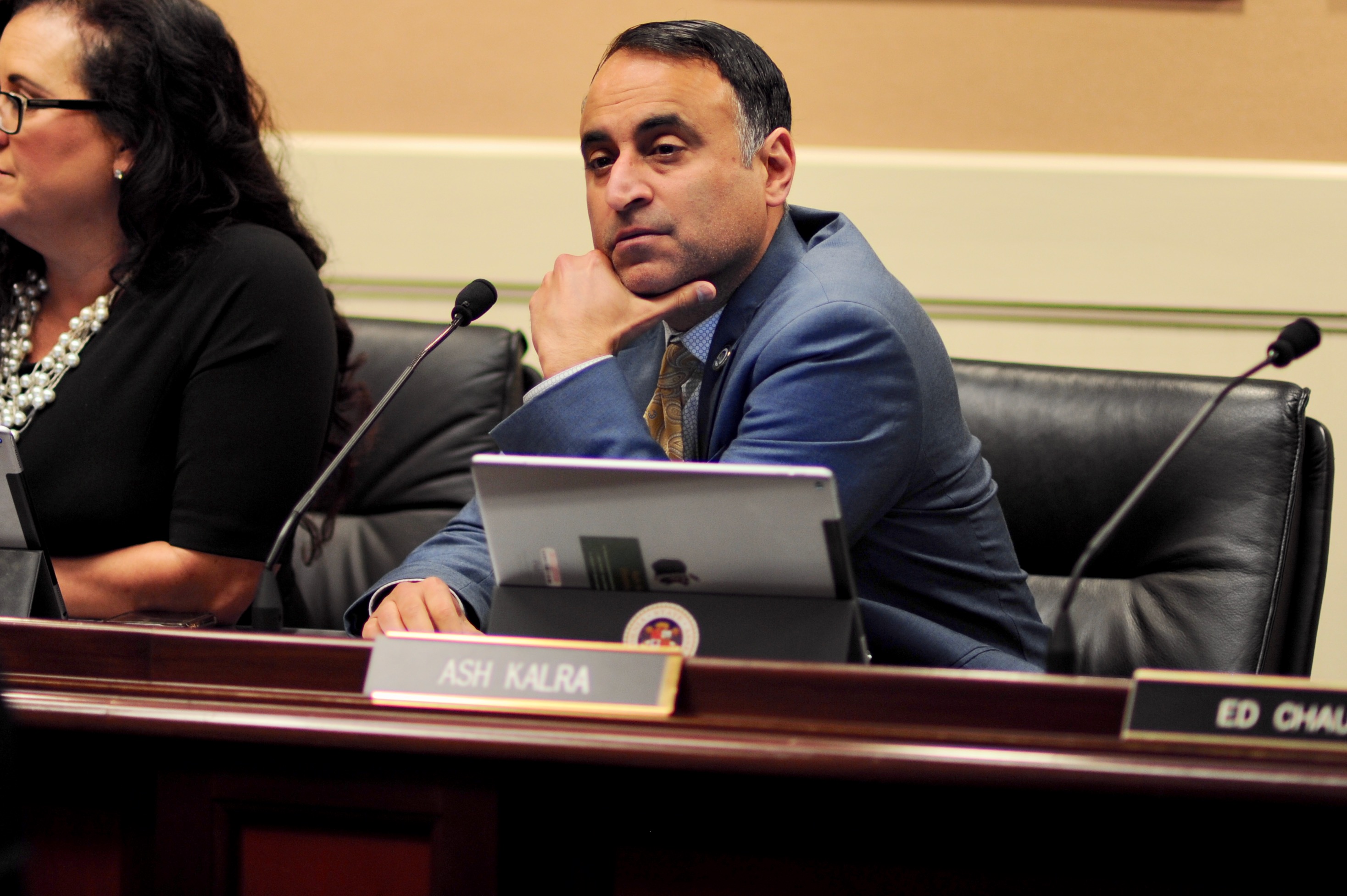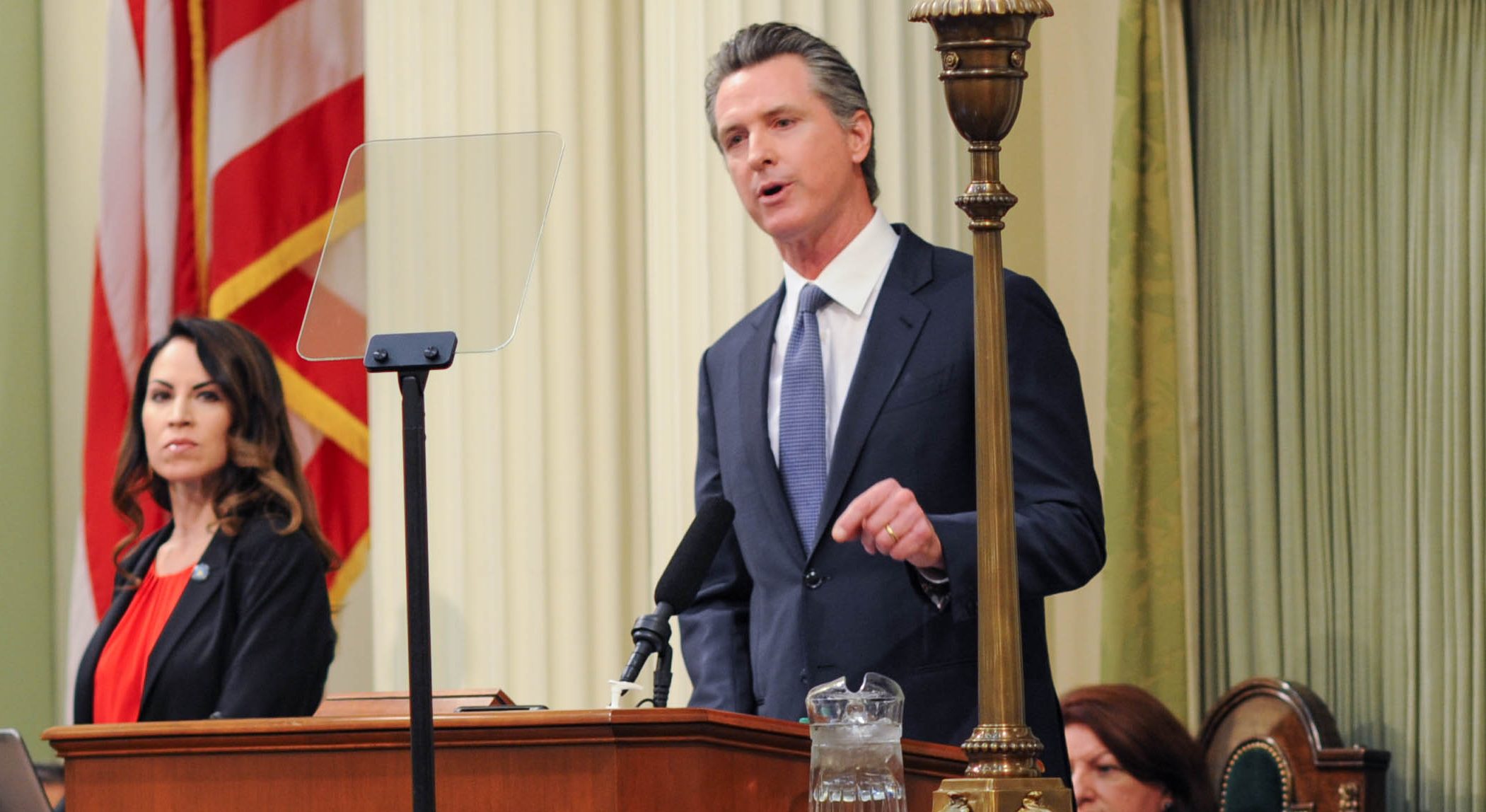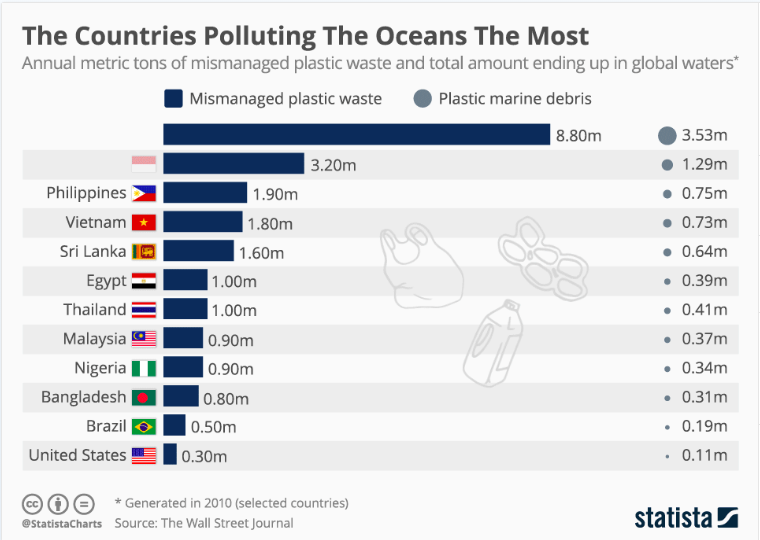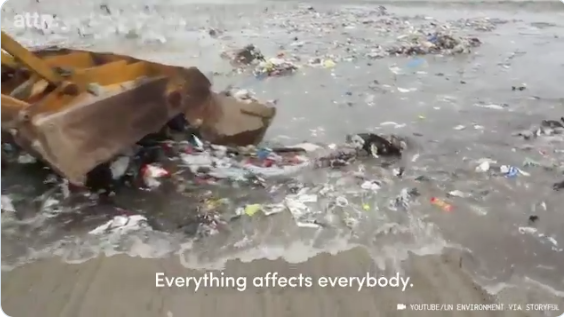
(screen capture Twitter)
‘The Future of California’s Quality of Life is at Stake’ Unless Plastic Packaging Is Banned
AB 1080 and SB 54 appear to be half-baked and may be shelved
By Katy Grimes, August 14, 2019 2:43 pm
‘Simply put, tracking individual products from cradle to grave would be a logistical nightmare – if not impossible – and would substantially increase the cost of goods.’
First California legislators came for our cigarettes, and banned smoking indoors and in public parks. Then they banned plastic bags, foie gras and shark fin soup. Next they banned styrofoam and plastic straws, petroleum products, and natural gas fracking. Chicken farmers are banned from caging egg-laying chickens, and the sale of pork and veal in California from farm animals raised in cages is also banned.
They are back, and plan to ban plastic packaging.
China and Indonesia lead the world in plastic pollution of the oceans, so California lawmakers have proposed legislation to restrict plastic usage … in California. Because California is an environmental leader and trendsetter on a global level, this bill is deemed justified.
Assemblywoman Lorena Gonzalez (D- San Diego) and State Senator Ben Allen (D-Santa Monica) are the authors of bills to phase out the sale and distribution of single-use plastics by 2030, because that say “our addiction to single-use plastics is killing our ecosystems.” Assembly Bill 1080 and Senate Bill 54 claim there is a “pollution and waste crisis,” and these bills will “dramatically reducing the amount of single-use waste generated in the California and requiring the remaining packaging and products to be truly recyclable or compostable.”
Senator Ben Allen says, “Every day Californians generate tons of non-recyclable, non-compostable waste that clog landfills, rivers, and beaches. The waste is often eventually broken down into toxic chemicals—some of them cancer-causing—that find their way into our food and water systems. The future of California’s quality of life is at stake.”
“We have to stop treating our oceans and planet like a dumpster,” Assemblywoman Gonzalez said. “Any fifth grader can tell you that our addiction to single-use plastics is killing our ecosystems. We have technology and innovation to improve how we reduce and recycle the plastic packaging and products in our state. Now, we have to find the political will to do so.”
Specifically, plastic single-use packaging and products sold or distributed in California must be reduced or recycled by 75 percent by 2030, Gonzalez says on her website. The bill also creates incentives and policies to encourage in-state manufacturing using recycled material generated in California. AB 1080 is co-authored by Assembly members Laura Friedman (D – Glendale), Phil Ting (D – San Francisco) and Tasha Boerner Horvath (D – Encinitas). Senators Nancy Skinner (D-Berkeley) and Scott Wiener (D-San Francisco) are co-authors of Sen. Allen’s Senate Bill 54.
Remember, California is also trying to ban tiny shampoo bottles from hotels. AB 1162 by Assemblyman Ash Kalra (D-San Jose) has surprisingly passed every committee. AB 1162 will not only impose the ban, but also allows for fines, and the Attorney General and District Attorneys to bring civil actions on violators.
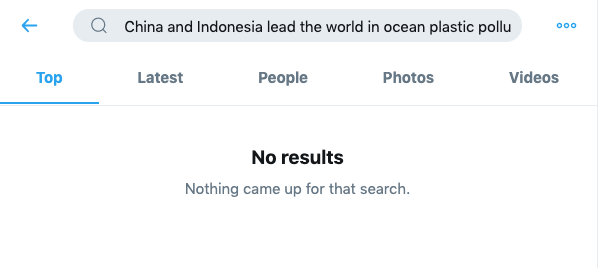
Recycling Centers Closing
Ironically, California’s largest recycling business shut down last week, laid off 750 employees, and closed all 284 of its centers. “RePlanet President David Lawrence said the company stopped operating because of increased business costs and falling prices of recycled aluminum and PET plastic,” the Los Angeles Times reported. “The move comes three years after RePlanet closed 191 of its recycling centers and laid off almost 300 employees.” PET (also abbreviated PETE) is short for polyethylene terephthalate, the chemical name for polyester.
“PET plastic” is a clear, strong, and lightweight plastic that is widely used for packaging foods and beverages, especially convenience-sized soft drinks, juices and water, the PET Resin Association explained. “Virtually all single-serving and 2-liter bottles of carbonated soft drinks and water sold in the U.S. are made from PET.”
Senate Environmental Committee analysis shared this nugget: “According to the California Coastal Commission (Commission), the primary source of marine debris is urban runoff (i.e., litter). By 2050, by weight there will be more plastic than fish in the ocean if we keep producing (and failing to properly manage) plastics at predicted rates, according to “The New Plastics Economy: Rethinking the Future of Plastics”, a January 2016 report by the World Economic Forum.”
Despite these findings, Assembly Democrats who spoke in support of the bill at a hearing earlier in the year issued dire warnings about California’s plastic waste. Assemblyman Ian Calderon (D-Whittier) told of whales landing dead on beaches with “30 pounds of plastic containers inside of them.” A Google search finds that whales have indeed landed on beaches with significant amounts of plastic in their bellies – in Indonesia, Thailand, the coast of Spain, and in the Philippines.
“We are a leader and trendsetter on a global level,” Calderon said.
Each legislative committee analyses demonstrates who is sponsoring this bill: Ocean Protection Council (OPC), National Oceanic and Atmospheric Administration (NOAA), Natural Resources Defense Council (NRDC), Sierra Club… and the like.
Additionally, analysis admits “the bill directs CalRecycle to examine single-use packaging and priority single-use plastic products across-the-board and develop an approach that would not only aid the state in meeting its 75 percent diversion goal but also result in the reduction of waste, a decrease in pollution; and its associated environmental impacts (like greenhouse gas emissions), and the creation of domestic markets for recyclable materials that will support the development of instate recycling infrastructure.
The bills require CalRecycle to adopt regulations that would (1) require single-use packaging and priority single-use plastic products be source reduced to the maximum extent possible and require, by 2030, that all single-use packaging and priority single-use plastic products be recyclable or compostable; (2) achieve, by 2030, a 75% reduction of waste generated by each of single-use packaging and priority single-use plastic of 20 products. The bill provides CalRecycle with a variety of tools to achieve these goals.”
The bills now have a significant number of opponents, and may get shelved because the bill analyses addresses that they are “ambitious” and half-baked. “Under the plain language of the bill, companies would have to track their individual products through the entire waste stream in order to demonstrate that their products are recycled at a rate of 75% over a three-year rolling period,” bill analysis says. “Simply put, tracking individual products from cradle to grave would be a logistical nightmare – if not impossible – and would substantially increase the cost of goods.”
The August 7 hearing was canceled at the request of author.
- California Democrats’ Backdoor Reparations Scheme - April 17, 2024
- California’s Senate Democrats Reject Bill to Make Purchasing a Child for Sex a Felony - April 16, 2024
- California’s Economic Outlook: 47th in the Nation - April 15, 2024


